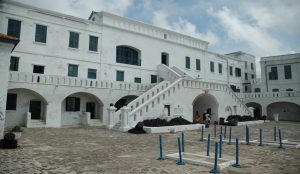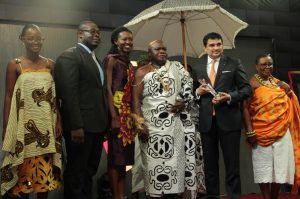Policy & Strategy review and reforms …to holistically harness national potential on best & sound practice principles for sustainable & responsible industry, inclusive & balance national development
ENACTMENTS, legislations and legal regimes, (laws) including conventions, rules, best industry practices, code of ethics are integral aspect and instrumental to the health, progress and evolution of every competitive, remarkable and respected professions and vocations everywhere in the world.
The importance of legal regimes are more pronounced and demanding when the profession and or vocation involved has global influence , dimension and are also prominent frontline sectors and industries such as tourism, education, trade and others.
UNWTO
The United Nations World Tourism Organization (UNWTO), is a UN specialist agency that champions responsible and sustainable global tourism development and evolution in the world.
It collects and collates industry data as well as commissions and conducts regular researches into and on industry and market trends, which are summarized as industry blueprints and roadmaps to supports member countries and destinations to ensure responsible and sustainable tourism development and evolution.
Headquarters
UNWTO the Madrid, Spain based UN specialist agency has sustainable and responsible tourism development promotion in the world as an integral part of its core mandate.
Secretary-General
Mr. Zurab Pololikashvili, a former Minister of State of Georgia, has since January assumed office and serves as the Secretary-General (SG) of the UNWTO.
Conventions & regulations
UNWTO has researched, developed and commissioned best industry practice protocols, sound management practice guidelines, rules, regulations, conventions and blueprints for the industry.
Domestic tourism
A very vibrant domestic tourism industry is an essential and indispensable cornerstone of a very sustainable and vibrant tourism industry development and evolution, Ghana inability to evolve a very robust, strong and vibrant domestic tourism is the bane of our national tourism development woes.
Convention 1:10
Among the UNWTO best industry best practice conventions is 1:10, which identifies, emphasis and asserts that domestic tourism as the indispensable energy that fuels sustainable tourism evolution, as such for every one (1) international touristic visitation to a facility and or destination, there be must ten (10) corresponding domestic touristic visitations to the destination and or facility in questions.1:10 has remained tourism’s foremost evergreen and prominent best industry guideline of all time.
Centre of excellence
Ghana as a leading UNWTO Member of long standing, with an added responsibility and unique role as the UNWTO Sustainable Tourism Eliminating Poverty (STEP) Foundation African Centre of excellence.
Ghana Our Motherland, is also an influential leading light in Africa and the world as a whole among the comity of nations, including our recent election to the UN Security Council, as a result many of our national policies, values and strategies turn to motivate and serve as footprints for other countries around the world.
Ministerial targe
Dr. Alhaji Ibrahim Mohammed AWAL, current Minister of Tourism, Arts and Culture (MOTAC), assumed duty with a very clear and precise target to move tourism from its current ranking as the fourth largest contributor to gross domestic product (GDP), to number one as the lead and foremost contributor to GDP.

National Tourism resource-mix outlook
Ghana has an outstanding very balance national potential and resources in all the four broad resource classifications of natural, man-made, cultural and heritage resources, which are fairly located across the length and breadth of the country in the sixteen (16) administrative regions and districts.
Ghana’s tourism resources also included some historic international landmarks and monuments, including slavery and colonial forts and castles, wells, markets and others which are listed and designated as World Heritage Properties (WHPs) by the United Nations Educational, Scientific and Cultural Organization (UNESECO).
Notable among national tourism heritage resources include all historic slavery and colonial forts and castles and other related slavery landmarks include Slave wells and markets in Salaga, Gwolu Slave Defense Walls, Assin Fosu Slave River, Memorial Gardens and Research Centre among others.
Among national natural tourism resources consist of the Afadjato at Amedzofe and Wli Waterfall, reputed as West Africa’s tallest waterfalls at Wli near Hohoe in the Afadjato South District Assembly (ASD) and the Hohoe Municipal Assembly (HM) respectively both in the Volta Region, the Equator and the Greenwich Meridian both in Tema in the Tema Metropolitan Assembly (Tema Metropolis), Greater Accra Region, there is also the historic Centre of Our Homeland and its associated landmarks at Kintampo in Kintampo North Municipal Assembly ( Kintampo North Municipal ) Bono East Region. Kakum Forest Reserve and its Canopy Walkway at the Kakum National Park at Kakum , in the Central Region is another popular natural tourism attraction as well as West Africa’s Biggest Tree at Espan Forest Reserve near Oda in the Asene Manso-Akroso District Assembly (Asene Manso- Akroso District), in the Eastern Region.
Begro Waterfalls, Tinni Waterfalls and Ote Waterfalls are other outstanding national natural tourism assets, located at Begro in the Fanteakwa North District, Atiwa West District and Afadjato South Districts in the Eastern & Volta Regions respectively.

Man-made resources
Man-made national tourism resources on the other hand include the Volta Dam and Hydro-Electrical Works at Akosombo and Volta Hotel both in the Asogyaman District of the Eastern Region.
The rest are Tema and Takoradi harbours, the Osagyefuo Dr, Kwame Nkrumah Mausoleum and Memorial Park, in Tema, Takoradi and Accra respectively.
Other remarkable and prominent man-made national tourism resources are the Independence and the Black Star Square, Accra, Kotoka International, Ho, Kumasi and Tamale Airports , Kempimski Gold Coast City Hotel , Royal Senchi Resort, La Palm Golden Beach Hotel, Golden Tulip Hotel, Elmina Beach, Holiday Inn, Marriot International , Alisa, Maha Beach Resort, Sogakope Beach Resort,Peduase Valley Resorts, Bojo Beach Resort, Jofel Catering, Papaye,Tang Palace and Kentucky Fried Chicken (KFC),Alisa Hotels, Movempic Ambassador, Accra City Hotel, Tang Palace, Accra Sports Stadium ,Alhaji Aliu Mahama Sports Stadium, Tamale are other unique man-made national tourism facilities in the country which add colour and gliitz to the country’s evergreen infant tourism industry.
The Adomi Bridge, Tetteh Quarshie Memorial Cocoa Farms and Museum, Oku Abena Caves,Oboodor da Oboor So Rock, Oworobong, Atia Mframa Natural Stone , Pan-African Theatre and Arts Festival (PANAFEST), Aboakyer,Agbamevorzaa,Agbelizaa, Asafotufiam, Akwasidae, Bugum, Emancipation, Fetu Afakye,Hogbetsotozaa, Homowo,Teezaa,Kundum, Kplejo, Odirwa Cultural Festival are other prominent national cultural tourism unique selling points , (USPs).
National special tourism treasures and events
A numbers of creative and innovative events on the national tourism calendar which have repositioned the country as an emerging tourism destination include PANAFEST, Emancipation, National Chocolate Day, Wli Waterfalls Festival, National Hang-Paragliding Festivals are among raft of special events which make the country attractive and competitive touristically.
Competitive edge
Political stability, relative national peace, safety and security, diversified and vibrant national cultural heritage are among priceless national tourism competitive assets which give the Homeland tourism unique selling –points (USPs) competitive advantage over its peers.
Poor Domestic tourism industry
Lack of a very vibrant domestic tourism industry as a result of the absence of National Tourism Legislation (NTL), Policy Regime (PR) as well as absence of modern and dynamic National Tourism Development Strategy (NTDS) are Ghana’s tourism bane, poor public funding and poor budgetary allocation to tourism, undocumented tourism resources as well as high national ignorance on multiple benefits including inclusive jobs and employment for both skilled and unskilled labour, foreign exchange , national environmental conservation and other tangible benefits from tourism development are litany of challenges that impede Ghana’s rapid tourism development.
The absence and lack of national tourism legislation and policy regime can be attributed as causes of the non-existence of a very vibrant Ghanaian national domestic tourism industry, the crucial factor in sustainable tourism development according to UNWTO best industry practice conventions, rules, regulations and protocols.
Tourism development narrative
The country has an attractive and enviable national tourism development trajectory, especially from 1993 to date, notably the 1993 historic formal creation of the Ministry of Tourism (MOT) and the 1996 launch of the iconic 1996-2010, 15-year comprehensive national tourism development blueprint roadmap.
Commission & omission
The nation’s failure and omission to take pragmatic steps to enact National Tourism Legislation (NTL) and Policy Regime (PR), to date remains the bane of our national tourism development woes.
Current tourism legislative regime
The most current enactment on our statues as National Tourism Legislation is the Ghana Tourism Authority (GTA) and the Tourism Development Levy / Fund (TDF), Act 2011, Act 817.
The Tourism Act was enacted over (ten) years ago, taking into consideration the regular parliamentary legislative procedure and process.
Other laws on our statues that are relevant and applicable to the country’s tourism sector include the National Film Authority (NFA) and the Film Development Fund (FDF) Act 2016, Act 935, the Chieftaincy act 2008, Act 759, the National Commission on Culture (NCC) Law, 1990, PNDCL 238, the Culture policy of 2004, the Ghana Museums and Monuments Board (GMMB) Act 1969, NLCD 387, the Wild Animals Preservation Act 1963, Act 43 and the Creative Arts Agency and the Creative Arts Development Fund Act 2020.
Way Forward
An in-depth analysis of Act 817 leads to the conclusion that the legislative piece is best suitable as the Ghana Tourism Authority (GTA) and the Tourism Development Levy/ Fund Act, rather than being a National Tourism Legislation
It is therefore very important to harmonize, review and consolidate all the above tourism related but fragmented pieces of laws into a refined single modern national tourism legislation, with detail attention to and adaption all UNWTO conventions, guidelines, regulations and best industry practices and ethics.
The duplication and fragmentations that found in these tourism related enactments are also visible among the Ministry of Tourism, Arts and Culture, (MOTAC),the statutory national tourism technical ministry, its implementing agencies and other allied ministries, departments and agencies (MDAs), this also call for in-depth institutional reforms.
National Tourism Legislation
Tourism is too crucial and super important to our current national socio-economic development transformation, there is therefore the need for the Ministry of Tourism, Arts and Culture (MOTAC) to take urgent steps in consultation with its implementing agencies, collaborators and stakeholders to enact national tourism legislation, to reposition the country’s infant but promising evergreen tourism industry for rapid and accelerated growth and development.
The proposed enactment must consider designating all metropolitan, municipal and district assemblies (MMDAs) as well as traditional authorities and rulers (TARs) as statutory and strategic tourism custodians and stakeholders.
Eco-tourism
Eco-tourism, heritage tourism and hospitality are other important and essential key tourism subsectors which the proposed tourism legislation must elevate to the front burner, in the scheme of things.

Hospitality-The unsung kingpin in Tourism growth & evolution (1)
Tourism as a very broad, holistic, strong and resilient global and competitive cash-cow industry which is founded on natural, man-made, cultural and heritage resources.
It is an outstanding modern phenomenal crucial and a remarkable strategic robust industry which has survived severe and devastating natural and man-made disruptions such as floods, pandemics, epidemics, draughts and others over the years. It has been and remains the world’s fastest, biggest and largest growing industry, since the turn of the millennium, over two decades ago.
National narrative
Ghana is not isolated on the tourism bug ,she has also seen and recorded improved national tourism growth in both receipts and visitor numbers over the years in tandem with global industry trends , however there is a school of thought by many tourism industry experts, analysts and researchers that Ghana’s overall national tourism growth and output is far below the actual national capacity, the sector is also very slow and stunted , attributing the sector slow growth and un-satisfactory country’s tourism growth to lack and absence of national tourism legislation and piecemeal instead of holistic approach , to national tourism development.

Reasons
Other reasons for the country’s slow and stunted growth include obsolete, duplicative and fragmented legislation (L) and legal regime (LR) as the immediate root causes of the country’s unimpressive tourism growth.
Overview
Data and statistics from the Quality Assurance department of the Ghana Tourism Authority (GTA), named the accommodation and catering subsectors as the topmost leading growth subsectors in the overall national-tourism sector-mix, which have recorded consistent, satisfactory and impressive consistent growth over the years, whose growth is also reflective on quality of products, services and alternatives, especially by practitioners in the two leading hospitality subsectors.
Hospitality

According to Mr. Alex Boakye, Director of Standards & Quality Assurance at the Ghana Tourism Authority (GTA) Headquarters in Accra,”the hospitality subsector stands taller and stellar as the star cash-cow super star jewel, which add colour and glitz to the nation’s evergreen and burgeoning infant tourism industry evolution, which has ultimately brands and repositioned the country attractive the ever-growing international competitive tourism evolution around the world.
Catering brands
Mr. Boakye observed that , “the hospitality subsector ,which covers accommodation, catering and entertainment facilities is what make tourism development and evolution most competitive and attractive, he said facilities and practitioners the country’s emerging tourism industry more can be and are classified two broad group of indigenous and foreign practitioners and brands respectively.
Notable among these prominent catering brands in the country include Papaye Fast Foods, Traffix, Joefel, Frankkies, Azemera, Country Kitchen,,Mawarko and Melcom Coffee. Others are Pipas Pizza, KFC, Food Inn, Peter pan and Southern Fried Chicken among others.
The aerial view of the evergreen Royal Senchi Resorts at Senchi, near Akosombo in the Eastern Region.
Accommodation facilities
Alisa Hotels, African Regent, Airport View, Best Western Plus, Kempinski Hotel Gold Coast City, Movenpic Ambassador, Accra City, Golden Beach Hotels, Royal Senchi Resorts, Tang Palace and Holiday Inn are prominent indigenous and foreign hospitality brands and facility brand giants and operators that have influenced , shaped and impacted the country infant and burgeoning evergreen tourism industry over the years.
Other remarkable accommodation brands include Aborigines Beach Resorts, African Regent, Afrikiko Riverfront, Aqua Safari, Peduase Valley Resorts, Atlantic Bay, Axim Beach, B&Q Resorts and Best Western Plus.
Busua Beach Resort, Coconut Groove Regency, Elmina Beach Resort, City Escape, Rock City and Holiday Inn are other prominent hospitality brands that have dominated the country’s hospitality industry over the years.
Maaha Beach Resort, Tulip Inn, Marriot, Protea, Sekina Glory, Sogakope Beach Resort, Volta Serene and Villa Cisneros are other known hospitality facilities which have combined to make the country’s infant tourism attractive. The rest are Alisa Hotels, Best Western Plus, Golden Beam, Eusbett and La Villa Boutique.
Regional rankings
Data and The statistics and accompanying data available from the Standards and Quality Assurance department of the GTA said the country has Eight Thousand, One Hundred (8,100) graded, accredited and licensed accommodation and catering facilities on its register as at the first quarter of 2021.
The Greater Accra Region according to the data leads the chart as the region with the highest number of accredited and licensed hospitality and catering facilities distribution among the sixteen national administrative and political divisions, it has Seven Hundred and Sixty-Three (763) accommodation and catering licensed facilities across the region. The Ashanti Region followed with Six Hundred and Forty-Eight (648) accommodation and catering plants and facilities as at the end of the first quarter of 2021. Ashanti is followed by Eastern and Central regions as the third and fourth with Four Hundred and Fifty-Six (456) facilities and Three Hundred and Forty-Six (346) facilities respectively.
Western Region ranked fifth with some Three Hundred and Twenty-Eight (348) licensed accommodation and catering facilities at the end of the first quarter of 2021, among others.
Accra dominates
The statistics further ranked and crowns the Greater Accra region the topmost with Three (3)-Five Star facilities, six (6)-4 Star facilities, and seventy (70)-2-Star, followed by the Ashanti Region which stands as number one has the most star rated facilities, shedding more insight into the national hospitality standing and breakdown among the sixteen (16) administrative regions . The Writer is a Tourism, Brands, Branding, Communication & Marketing Practitioner, Analyst, Advocate and Activist.
Email: [email protected]










